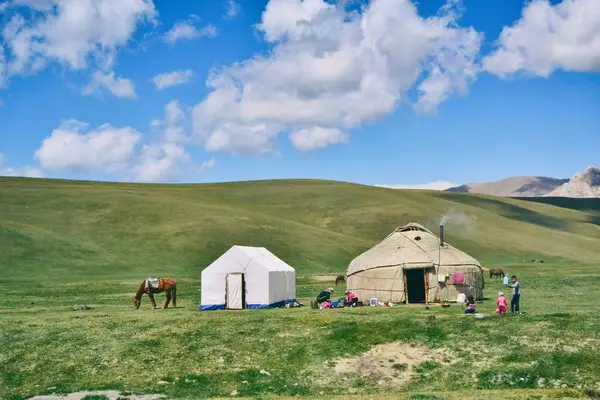Table of Contents
- Historical Context of Nomadism
- Contemporary Nomadism
- Sociological Implications of Nomadism
- Challenges and Future Prospects
- Conclusion
Nomadism, as a social and cultural phenomenon, encompasses a variety of lifestyles characterized by the movement of people across territories without permanent settlement. This way of life, deeply rooted in human history, continues to be practiced by numerous groups around the world. In examining nomadism through a sociological lens, we gain insights into the dynamics of human adaptation, social organization, and cultural expression. This article explores the concept of nomadism, its historical context, contemporary manifestations, and the sociological implications of a mobile existence.
Historical Context of Nomadism
Early Human Societies
The origins of nomadism can be traced back to the earliest human societies. Hunter-gatherer groups, which predate agricultural civilizations, were inherently nomadic. These groups moved in search of food, water, and favorable living conditions, adapting to their environment in ways that ensured their survival. Nomadism allowed early humans to exploit a wide range of resources and avoid the risks associated with resource depletion in a fixed location.
Development of Pastoral Nomadism
With the domestication of animals, a new form of nomadism emerged: pastoral nomadism. Pastoralists rely on herding domesticated animals, such as cattle, sheep, goats, and camels, and move their herds seasonally to access grazing lands and water. This lifestyle is particularly suited to arid and semi-arid regions where sedentary agriculture is less viable. Pastoral nomadism involves complex social structures and cultural practices, reflecting the interdependence between humans and their livestock.
The Impact of Sedentism and Urbanization
The advent of sedentary agriculture and the rise of urban centers significantly altered the landscape of human societies. However, nomadism did not disappear; instead, it persisted alongside sedentary lifestyles, often in symbiotic relationships. Nomadic groups traded goods, facilitated cultural exchanges, and sometimes served as intermediaries between different sedentary communities. Despite the increasing dominance of sedentism, nomadic cultures continued to thrive, maintaining their distinct identities and practices.
Contemporary Nomadism
Pastoral Nomads in the Modern World
Today, pastoral nomadism persists in various parts of the world, including the Sahel region of Africa, the Middle East, Central Asia, and parts of South America. Modern pastoralists face numerous challenges, including land encroachment, environmental degradation, and political instability. Nevertheless, they continue to adapt, employing traditional knowledge and practices to navigate the complexities of the contemporary world.
Urban Nomadism and Digital Nomads
In the context of globalization and technological advancement, new forms of nomadism have emerged. Urban nomadism refers to the movement of individuals within and between urban areas, often driven by economic opportunities, lifestyle choices, or social networks. Digital nomads, a subset of urban nomads, leverage technology to work remotely while traveling. This lifestyle reflects a significant shift in the nature of work and mobility, facilitated by the internet and digital communication tools.
Migration and Displacement
Forced migration and displacement represent another facet of contemporary nomadism. Conflict, environmental disasters, and economic hardships force millions of people to leave their homes and seek refuge elsewhere. These individuals, often labeled as refugees or internally displaced persons (IDPs), experience a form of involuntary nomadism. Their mobility is driven by necessity rather than choice, and their experiences highlight the vulnerabilities and resilience of displaced populations.
Sociological Implications of Nomadism
Get the full article AD FREE. Join now for full access to all premium articles.
View Plans & Subscribe Already a member? Log in.





